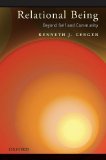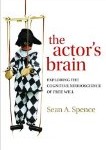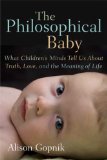July 28, 2009

Chess Metaphors: Artificial Intelligence and the Human Mind by Diego Rasskin-Gutman tr. Deborah Klosky (MIT Press, 2009)
Product description from the publisher:
When we play the ancient and noble game of chess, we grapple with ideas about honesty, deceitfulness, bravery, fear, aggression, beauty, and creativity, which echo (or allow us to depart from) the attitudes we take in our daily lives. Chess is an activity in which we deploy almost all our available cognitive resources; therefore, it makes an ideal laboratory for investigation into the workings of the mind. Indeed, research into artificial intelligence (AI) has used chess as a model for intelligent behavior since the 1950s. In Chess Metaphors, Diego Rasskin-Gutman explores fundamental questions about memory, thought, emotion, consciousness, and other cognitive processes through the game of chess, using the moves of thirty-two pieces over sixty-four squares to map the structural and functional organization of the brain.
Rasskin-Gutman focuses on the cognitive task of problem solving, exploring it from the perspectives of both biology and AI. He examines concept after concept, move after move, delving into the varied mental mechanisms and the cognitive processes underlying the actions of playing chess. Bringing the game of chess into a larger framework, he analyzes its collateral influences that spread along the frontiers of games, art, and science. Finally, he investigates AI’s effort to program a computer that could beat a flesh-and-blood grandmaster (and win a world chess championship) and how the results fall short when compared to the truly creative nature of the human mind.
Comments (0)
- mind,new books
July 27, 2009

The Neuro Revolution: How Brain Science Is Changing Our World by Zack Lynch with Byron Laursen (St Martin’s Press, 2009).
Product description from the publisher:
History has already progressed through an agricultural revolution, an industrial revolution, and an information revolution. The Neuro Revolution foretells a fast approaching fourth epoch, one that will radically transform how we all work, live and play.
Neurotechnology—brain imaging and other new tools for both understanding and influencing our brains—is accelerating the pace of change almost everywhere, from financial markets to law enforcement to politics to advertising and marketing, artistic expression, warfare, and even religious belief.
The Neuro Revolution introduces you to the brilliant people leading this worldwide transformation, taking you into their laboratories, boardrooms and courtrooms for a unique, insider’s glimpse into the startling future now appearing at our doorstep. From foolproof lie detectors to sure-fire investment strategies to super-enhanced religious and aesthetic experiences, the insights and revelations within The Neuro Revolution will foster wonder, debate, and in some cases consternation. Above all, though, they need to be understood by those who will be most affected—all of us.
See also: website for the book
Comments (0)
- cognitive science,new books
July 22, 2009
Social psychologist Kenneth J. Gergen, author of The Saturated Self,
 has a new book out from Oxford University Press: Relational Being: Beyond Self and Community.
has a new book out from Oxford University Press: Relational Being: Beyond Self and Community.
Product description from the publisher:
This book builds on two current developments in psychology scholarship and practice. The first centers on broad discontent with the individualist tradition in which the rational agent, or autonomous self, is considered the fundamental atom of social life. Critique of individualism spring not only from psychologists working in the academy, but also from communities of therapy and counseling. The second, and related development from which this work builds, is the search for alternatives to individualist understanding. Thus, therapists such as Steve Mitchell, along with feminists at the Stone Center, expand the psychoanalytic tradition to include a relational orientation to therapy.
The present volume will give voice to the critique of individualism, but its major thrust is to develop and illustrate a far more radical and potentially exciting landscape of relational thought and practice than now exists. Most existing attempts to build a relational foundation remain committed to a residual form of individualist psychology. The present work carves out a space of understanding in which relational process stands prior to the very concept of the individual. More broadly, the book attempts to develop a thoroughgoing relational account of human activity. In doing so, Gergen reconstitutes ‘the mind’ as a manifestation of relationships and bears out these ideas in a range of everyday professional practices, including family therapy, collaborative classrooms, and organizational psychology.
Comments (0)
- new books,self
July 21, 2009
Alternate Minds: Cognitive Science Fiction and Philosophy is a cool new blog from Pete Mandik, who describes its aim:
…to explore science fictional permutations of the concept of mind (and related concepts such as intelligence, perception, selfhood). By entertaining speculative scenarios wherein the target concepts are bent almost beyond recognition, we gain insights into the nature of mind and catch glimpses of new possibilities. Initial investigations will be clustered around seven key themes: Virtual Minds, Infinite Minds, Group Minds, Time-traveling Minds, Hyper-spatial Minds, Quantum Minds, and Anti-Minds.
Comments (0)
- cognitive science,fiction,philosophy of mind







